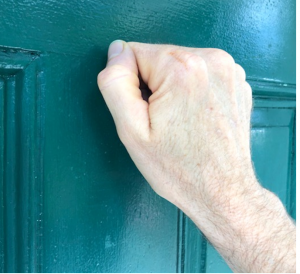Nucleus is warning that a freeze needs to be put on debt and parking enforcement during the corona virus outbreak.
Amid concerns about increasing numbers of people going into debt, reckless enforcement poses both the threat of accidental transmission and disruption by clamping the vehicles of NHS workers and emergency staff.
A moratorium needs to be placed upon using bailiffs to collect debts going around door-to-door for the whole period the corona virus outbreak and wheel clamping of vehicles needs to stop.
On Sunday 22 March 2020 shift workers from Bournemouth Hospital who parked in a closed leisure centre car-park near the hospital arrived back to find their vehicles had been clamped.
However, as yet no official announcement has been made concerning bailiffs or any freeze or suspension put on their actions.
The advice from Nucleus is not to allow bailiffs to enter your home and you have the right refuse entry. Also be conscious where you park your vehicle.
The risk of transmission of the corona virus is significant.
Enforcement agents who visit the homes of debtors have large case loads and make many calls at day, especially with bulk orders over council tax and utility debts.
Currently, it is not clear what steps the bailiff industry is taking, but at this time anyone making door-to-door calls or trying to enter homes pose a real risk of transmitting the infection.
Ultimately, creditors have control of whether bailiffs are used. They should suspend debt collection during the outbreak.
Government advice
The risk of corona virus being spread by personal calls during the outbreak is clearly given in official Government advice saying you should self-isolate:
See: https://www.gov.uk/government/publications/covid-19-stay-at-home-guidance/stay-at-home-guidance-for-households-with-possible-coronavirus-covid-19-infection
- you are over 70 years of age, have a weakened immune system, an underlying health condition, or are pregnant
with further calls for self-isolation being made to the rest of the population.
Existing Bailiff Guidance on the sick, elderly and vulnerable groups
Guidance for bailiffs that has been in place since the introduction of the National Standards for Enforcement Agents in April 2002 and updated in April 2014
https://www.gov.uk/government/publications/bailiffs-and-enforcement-agents-national-standards
These standards put particular emphasis on there being proper safeguards and protection for the following groups which overlap with at-risk groups.
Bailiffs should withdraw and contact the creditor if they encounter the following:
* the elderly;
*people with a disability;
* the seriously ill;
* the recently bereaved;
* single parent families;
* pregnant women;
* unemployed people; and,
* those who have obvious difficulty in understanding, speaking or reading English.
The role of creditors and authorities using bailiffs
Should a debtor be identified as vulnerable, creditors should be prepared to take control of the case, at any time, if necessary and call off the bailiffs.
Paragraph 14 states:
Creditors must consider the appropriateness of referring debtors in potentially vulnerable situations to enforcement agents and, if they choose to proceed, must alert the enforcement agent to this situation.